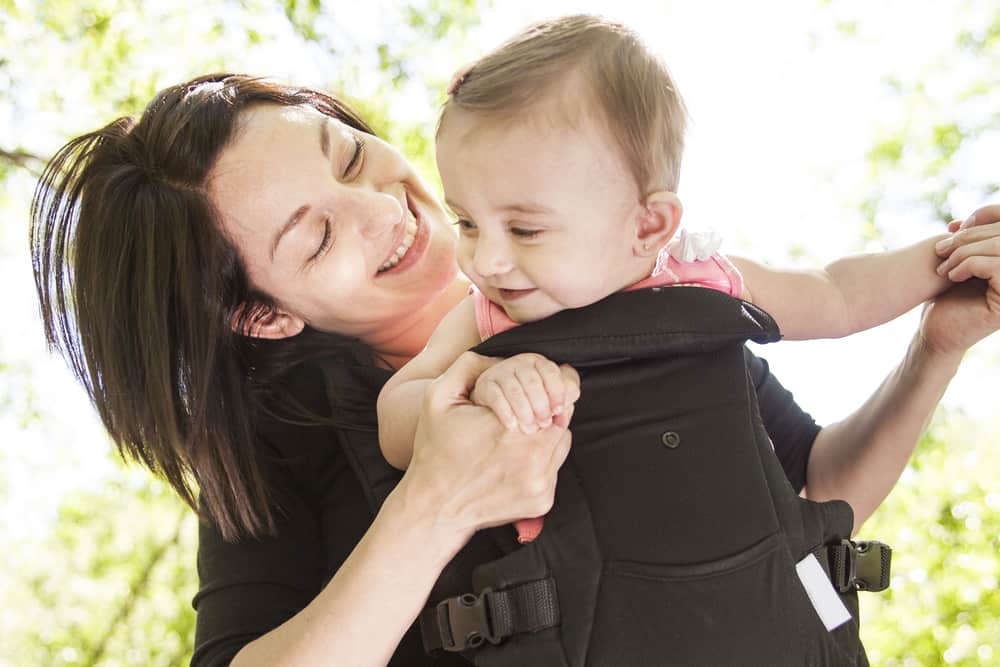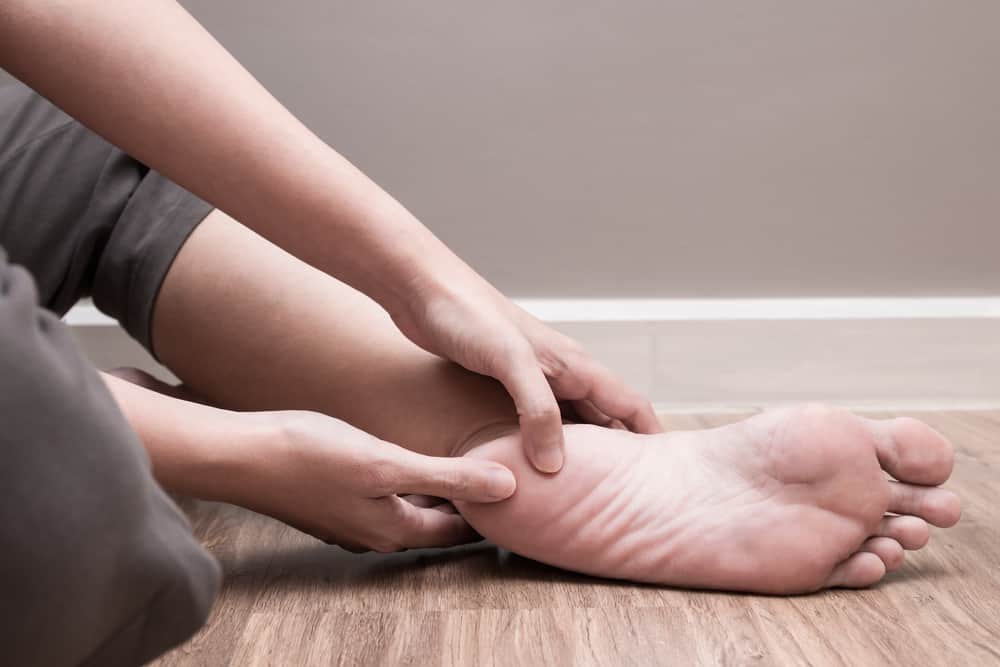Contents:
- Medical Video: 17 Weeks Pregnant: Watch Your Baby's Development
- Development of Babies Aged 17 Weeks
- What should be the development of a 17-week-old baby?
- Health for babies aged 17 weeks
- What do I need to discuss with the doctor?
- What should I know about a 17-week-old baby?
- Attention
- What should I pay attention to at the age of 17 weeks?
Medical Video: 17 Weeks Pregnant: Watch Your Baby's Development
Development of Babies Aged 17 Weeks
The development of a 17-week baby is quite diverse, as a parent you might be curious about what your little one can do at that age.
What should be the development of a 17-week-old baby?
Researchers believe that during the development of the 17-week baby, babies can understand all the basic sounds that make up their main language.
Di between the ages of 4 months and the age of 6 months, he will develop the ability to make sounds in language, which means you may hear words like "mama" and "chest".
You can encourage your baby's communication efforts by imitating his expression and voice. He might also try to imitate you. Say "ba" and he might try to say back.
Reacting when the baby makes a sound or tries to say something will help him learn the importance of language and better understand cause and effect. This is also useful for baby's confidence. The baby will begin to realize that what he said and make other chattering sounds.
In the development of a 17-week baby, your baby may be able to:
- Lift your head 90 degrees while lying down
- Laugh out loud
- Know all the basic sounds of their mother tongue
- Saying simple words like "mama" and "baba", not all babies are just a few. On average they also don't really understand the meaning
- Follow objects as far as 15 cm and move 180 degrees from one side to the other.
What should I do at the age of 17 weeks?
To help children, encourage him to talk while positioning the baby to sit in front of a mirror or imitate the expressions and sounds that the baby makes.
You can also react when they make a sound or try to say something to help them realize the importance of language and understand how to communicate.
Health for babies aged 17 weeks
What do I need to discuss with the doctor?
Every doctor will have their own method to check the health of the baby depending on certain situations. Overall physical testing and the number and type of diagnostic techniques and procedures will vary depending on the child's condition.
However, you can anticipate and consult with your doctor about problems after your baby has a health check:
- Tell your doctor about you and your baby like how to feed, how to put the baby to sleep and the overall development situation when taking care of the baby.
- The doctor will measure your weight and height as well as the baby's head circumference and to reconsider the health condition of the baby from birth
What should I know about a 17-week-old baby?
There are a number of things you need to know about the age of developing a baby 17 weeks:
1. Ear infection
Ear infections at the age of 17 weeks of development are common.Ear infections Acute otitis media called this occurs when viruses or bacteria and fluids are trapped behind the eardrum.
At first this condition will cause symptoms such as pain, swelling, and fever. Even so, ear infections are very common in infants.
The symptoms of this disease will cause the following:
- Eating problems or lazy breastfeeding. Ear infections may cause pain when the baby chews and swallows.
- The ear keeps feeling pulled
- Fever 38 - 40 degrees Celsius.
- Behavior changes dramatically to become more fussy, coupled with the possibility of flu. Pressure in the ear can cause pain in infants, especially when they are placed (such as when eating or lying down) and makes them irritable and menangs.
- The ear secretes fluid that can be yellow, white, or even blood.
- Diarrhea. Ear infections are often caused by viruses and viruses can also affect the digestive system and cause it diarrhea.
Ear infections in 17-week-old babies usually disappear by themselves after a while. However, the doctor will prescribe it acetaminophen for pain and fever. Infant disease can often heal slowly within 2 days after treatment.
To prevent ear infections in infants, take the following precautions:
- Keep the baby away from smokers. because smoking can weaken their immune system
- Continue breastfeeding if the baby is not fussy. Research shows that breastfeeding babies are less likely to get ear infections.
- Make sure children get all immunizations, especially pneumonia and influenza to reduce the incidence of ear infections
- Limit the use of pacifiers, several studies show that babies who use pacifiers are more at risk of ear infections
- If you leave your child in a day care center, let the child play with a younger child. This will reduce exposure to bacteria which worsens ear infections.
2. Helps baby wake up
If the baby is difficult to get up on his own after he falls, help him stand or to a sitting position. However, do not try to make it stand, because the neck and back are not perfect.
Instead of standing up, you can support a 3-4 month old baby where the baby can straighten his head and not fall when you help him from various positions.
In addition to changing posture, a sitting position will help the baby see further. Instead of just staring at the sky or the surroundings of the stroller, the baby sitting will be able to see things like passersby, shops, houses, trees, pets, buses, cars, and amazing things around them. He will be more able to have fun than when just lying down. So, when the baby sits he will be more relaxed.
3. The baby is too chubby
In contrast to being overweight in adults, chubby babies do not mean that they are caused by strong eating or breastfeeding patterns.
Instead of trying to lose baby's weight, it is better to slow down weight gain, because babies are getting taller and more active, babies can be thinner.
Some of these tips can help if you are worried about the child's weight status:
- Only breastfeed when the baby is hungry
- Adjust your diet if necessary
- Pay attention to food calories
- Don't wean the child too early to encourage him to sleep all night. Not only ineffective, but also causes overweight in children
- Encourage baby to be more active. If you rarely move, encourage the baby to move more.
Attention
What should I pay attention to at the age of 17 weeks?
Below are a few things you should pay attention to:
1. When a baby refuses breast milk
This refusal of ASI is usually temporary, and is a certain reason. The most common causes are:
- Mother's diet. For example if there are some foods that make babies refuse breast milk, avoid these foods until they are weaned.
- Babies get the flu. When the nose is blocked, the baby cannot breathe through the mouth and suck at the same time, and of course the baby's first choice is to use the mouth to breathe.
- Babies want to grow teeth. Although almost all babies do not have teeth until the age of 5-6 months, some of them begin to grow teeth early. Often the baby will grow one or two teeth in the first 4 months. Breastfeeding will suppress the gums which can swell so the baby will feel sick.
- Earache.
- There is a wound in the baby's mouth.
- ASI flows slowly. When hungry, the baby will lose patience if the milk does not come out quickly.
- Changes in maternal hormones. New mothers will produce hormones that change the taste of breast milk and make babies refuse to drink.
- Stress on mother.
- Babies are ready to be weaned.
At times like this, this method might help:
- Don't try to let the baby drink other milk
- Try again. Even though he continued to refuse breastfeeding, he might return to sucking after a while
- Gently give solid food to the baby
If you continue to refuse milk or have other symptoms, discuss with your doctor for advice.
2. Difficult to change diapers
If previously a 17-week-old baby behaves calmly when the diaper is replaced, you will now find it harder to change diapers. Babies will feel uncomfortable and forced to wear diapers, which will make diaper replacement difficult.
The trick, before changing diapers, prepare everything you need before putting the baby on the changing table. Also add sound to distract him, like the sound from a television, cellphone, music box or favorite toy, or with singing or talking to babies until it's finished changing diapers.












